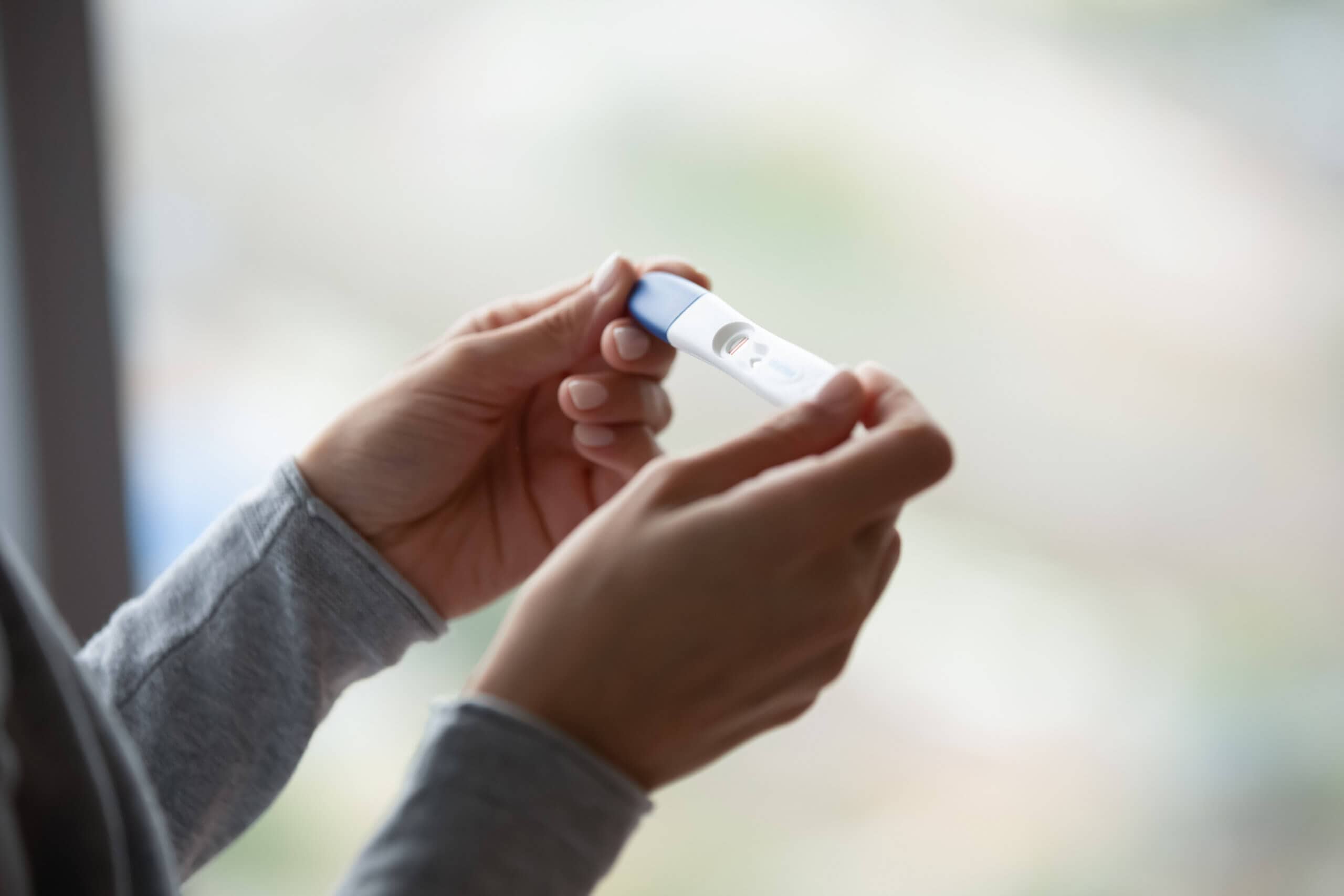When you’re pregnant, anything out of the ordinary can cause worry. This is especially true during early pregnancy, when your baby still has a long way to go. And if this is your first baby or you’ve struggled to conceive in the past, anything unexpected is likely to cause even more concern.
One relatively common occurrence that can be unsettling is spotting during pregnancy.
What is spotting in early pregnancy?
If you have a little light bleeding during your pregnancy, that’s spotting. It’s particularly common during the early stages of your pregnancy, but can happen anytime from conception up to the arrival of your baby.
It’s called spotting because the amount of blood is small – not enough to fill a panty liner. You might notice a few drops of blood in your underwear or toilet paper.
Bleeding, on the other hand, would be enough blood to soak your clothes.
Causes of bleeding in early pregnancy
Implantation bleeding
Spotting is especially common during your first trimester. One reason for this is that spotting sometimes happens when the embryo embeds itself in the wall of your womb. This might look like a haematoma on an early scan.
Implantation bleeding often occurs during the time of the month when your period would normally come and it might look very similar to a light period.
It’s usually lighter in colour as well, appearing with a pinkish – or sometimes brown – shade.
Hormonal changes
When you become pregnant, there’s a flood of hormonal changes happening in your body. They can make you feel sick, tired and emotional. They can also cause spotting.
It’s common to experience spotting through hormonal changes around 4-8 weeks – about when your period would normally appear. This timing is one reason some women don’t realise they’re pregnant until later.
By around the 13th week, the spotting will normally disappear. At this point, the well-developed placenta will be creating all the hormones needed for your pregnancy.
Cervical changes
During pregnancy, your body will increase blood supply to your womb and cervix. As a result, your cervix might bleed a little, but it won’t hurt.
When you’re pregnant, the cells that are normally inside the cervical canal spread out to the surface of your cervix. These cells are thinner, making them appear red. This process is called cervical erosion or cervical ectropion.
It can mean some bleeding after sex. While it’s not usually a problem, you should discuss it with your doctor to make sure.
Having sex
Since your cervix becomes more sensitive and is supplied with more blood during pregnancy, penetrative sex can cause some of this blood to emerge.
At the end of your pregnancy, meanwhile, spotting after sex could be an early sign of labour as the mucus plug loosens or is dislodged.
Miscarriage
A miscarriage is the loss of a pregnancy in its first 23 weeks. The main sign of one is vaginal bleeding, sometimes accompanied by pain or cramping in your abdomen.
The bleeding can be light and go on for a week or two, or it can be much heavier. In cases of a miscarriage, the cervix will dilate until it’s empty, a process that starts heavier bleeding. This usually lasts three to five hours, but a natural miscarriage will normally take a couple of weeks in total.
How much blood comes with a miscarriage will vary, with more advanced pregnancies generally resulting in more blood. The colour of that blood can vary, from pink to red to brown to almost black.
Although around one in eight pregnancies ends in miscarriage, recurrent miscarriages (three or more in a row) are only experienced by about 1 in 100 women. For most women, the pregnancy after miscarriage results in a healthy birth. When you’re ready to try again after a miscarriage, using a supplement like Impryl can help you to conceive.
Ectopic pregnancy
An ectopic pregnancy is a dangerous situation where a fertilised egg becomes implanted outside the womb, usually in a fallopian tube. As a result, the egg won’t develop into a baby and must be removed. If it’s not removed, it could rupture and have life-threatening consequences for the woman.
Vaginal bleeding can be an indicator of ectopic pregnancy, so it’s important to rule this possibility out. Bleeding occurs during ectopic pregnancies when the decidua (the lining of the uterus) sheds.
Can you prevent bleeding in early pregnancy?
It’s important to note that while you should always speak to a doctor or midwife about spotting, it’s usually nothing to be concerned about. From hormones to embryo implantation and cervical changes to having sex while pregnant, there are various reasons why spotting might occur. Light bleeding during early pregnancy (and even further into the pregnancy) is often natural and harmless.
However, there may be circumstances where a doctor would recommend taking action to prevent bleeding. For example, if you’ve previously suffered a miscarriage and a scan has confirmed your pregnancy, you might be offered a medicine called progesterone. If this course of action is recommended, you’ll usually take it twice a day until your 16th week of pregnancy.
Your doctor or midwife might also recommend measures such as:
- Resting in bed or taking more naps
- Ensuring you’re hydrated
- Elevating your feet when you can
- Cutting down on physical activity
- Refraining from lifting objects heavier than 10lb (4.5kg)
What should you do if you have bleeding or spotting during pregnancy?
When it comes to pregnancy, it’s better to be safe than sorry. If you have any bleeding at all from your vagina, call your GP or midwife immediately.
To discover the cause of the blood, you might need a vaginal or pelvic examination, a scan or blood tests. You’ll also be asked about any other symptoms, which will inform the diagnosis. These might include pain, cramp or dizziness, so try to remember how you felt when you noticed the blood.
It might be nothing at all to worry about, but it’s best to let medical professionals make that decision. Plus, if it is just some light spotting, speaking to a doctor or midwife will put your mind at ease.
With feelings of fatigue, all kinds of new hormones at play and anxiety about your baby’s safe arrival, pregnancy can be a difficult time. Add vaginal bleeding to all this and your stress levels can quickly shoot up. So as soon as you notice any spotting at all, give your doctor or midwife a call. They’ll know exactly what to do, if you need to do anything.








